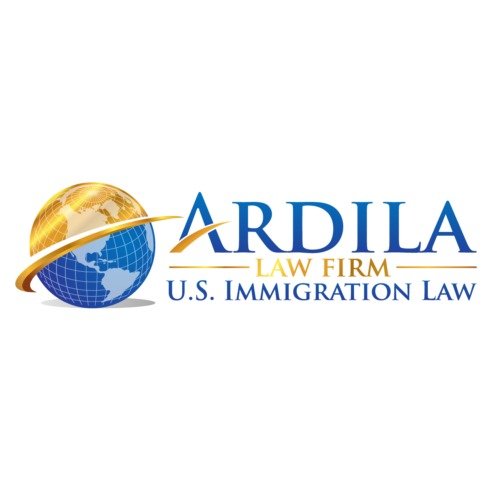Best Lawyers in Florida
Share your needs with us, get contacted by law firms.
Free. Takes 2 min.
Or refine your search by selecting a city:
List of the best lawyers in Florida, United States
United States Legal Questions answered by Lawyers
Browse our 38 legal questions in United States and read the lawyer answers, or ask your own questions for free.
- Internal investigation of sexual harassment in US
- I’m from [company removed], based in Hong Kong. One of my firm’s US employee reported to internal legal that I have sexually harassed her during my last trip to New York. An internal investigation is kicking off and I will be interviewed by firm legal. Also I have the opportunity... Read more →
-
Lawyer answer by M BILAL ADVOCATES, CORPORATE & TAX CONSULTANTS
If you are facing a sexual harassment allegation and an internal investigation in the U.S., do not submit a written statement or attend an interview without proper legal guidance. Anything you say can significantly impact your career, reputation, and potential...
Read full answer - Prenup Review and Signature
- I am looking for a Brazilian attorney to legally review a prenup with my fiancée. The prenup is only 18 pages written in both English and Portuguese. My fiancée speaks and reads English. The prenup follows USA/Virginia law. Once reviewed and signed by a lawyer with my fiancée, she can... Read more →
-
Lawyer answer by Castro Magalhães Law Offices
February 23, 2026 Proposal for Legal Services: Review of Prenuptial Agreement Dear Client, I am pleased to submit this proposal for the provision of legal services related to the review of a prenuptial agreement drafted in accordance with the laws...
Read full answer - Prenup Review and Signature
- I am looking for a Brazilian attorney to legally review a prenup with my fiancée. The prenup is only 18 pages written in both English and Portuguese. My fiancée speaks and reads English. The prenup follows USA/Virginia law. Once reviewed and signed by a lawyer with my fiancée, she can... Read more →
-
Lawyer answer by Castro Magalhães Law Offices
Castro Magalhães Sociedade Individual de Advocacia Carlos HB de Castro Magalhães OAB/RJ 080.783 | OAB/SP 501.014 Avenida Presidente Vargas, 3131, sala 604, Cidade Nova, Rio de Janeiro, RJ Avenida Paulista 1471, conjunto 511, CP 3622, Bela Vista, São Paulo, SP...
Read full answer
United States Legal Articles
Browse our 33 legal articles in United States written by expert lawyers.
- New York Climate Superfund Act Liability 2026 Guide
- This new US climate cost recovery law is retroactive and targets large historical greenhouse gas (GHG) emitters in energy, industrial, and logistics sectors as "responsible parties" for a $75 billion fund. Liability is strict: the government does not need to prove fault, negligence, or causation of specific climate harms, only... Read more →
- NY 2026 Corp Tax: Thresholds & Franchise
- For tax years beginning on or after January 1, 2026, New York businesses will only be required to make estimated tax payments if their expected New York tax (including any MTA surcharge) is at least $5,000, up from $1,000. Many small and some mid-sized New York corporations and S corporations... Read more →
- Are Non-Competes Enforceable in New York?
- Non-competes are still legal in New York and most of the United States, but courts apply strict scrutiny and often refuse to enforce broad, form agreements. Governor Hochul vetoed New York's broad non-compete ban (often referenced as S4641A / S3100A) in December 2023, so as of my last update there... Read more →
About Hiring a Lawyer in Florida, United States
Hiring a lawyer in Florida is a straightforward process, though it does require some careful consideration to ensure you choose the right professional for your legal needs. Florida boasts thousands of licensed attorneys who offer expertise in areas ranging from family law and personal injury to real estate and criminal defense. The basic process involves determining your legal needs, searching for qualified attorneys, scheduling consultations (many offer a free initial consultation), and deciding on the right lawyer for your case. When hiring a lawyer, always verify their credentials through the Florida Bar, discuss fees and payment structures, and make sure you feel comfortable with their communication style and experience in relevant areas of law.
Why You May Need a Lawyer
There are many situations in Florida where engaging a lawyer is highly recommended, or even necessary. Common scenarios include:
- Criminal Defense: If you are facing criminal charges, an attorney can protect your rights and present your case in court.
- Family Law: Issues such as divorce, child custody, and adoption require specialized legal guidance to ensure fair outcomes.
- Personal Injury: After an accident or injury, a lawyer can help you seek compensation and navigate insurance claims.
- Real Estate: Buying or selling property in Florida often involves complex contracts and regulations.
- Estate Planning and Probate: Lawyers can help you draft wills, trusts, and navigate the probate process after a loved one's passing.
- Immigration: Navigating the U.S. immigration process is complicated and often requires legal support.
- Employment Issues: Disputes over contracts, wrongful termination, or discrimination often require legal intervention.
- Business Formation and Disputes: Whether starting a new business or resolving legal conflicts, an attorney’s guidance helps protect your interests.
Local Laws Overview
Florida's legal system is based on both federal and state laws, with unique local statutes that affect residents and businesses. Key aspects include:
- No-Fault Car Insurance: Florida is a no-fault insurance state, meaning your own insurance typically covers your injuries after a car accident, regardless of fault.
- Homestead Exemption: Florida law offers strong protections for primary residences, particularly during bankruptcy or from certain creditors.
- Property Laws: Real estate transactions must comply with strict rules, including disclosures and title examination.
- Marital Property: Florida is an equitable distribution state, which means marital assets are divided fairly, but not necessarily equally, during divorce.
- Probate Process: Estates worth over a certain threshold must go through probate, with specific requirements for executors and beneficiaries.
- Tenant and Landlord Rights: The Florida Residential Landlord and Tenant Act outlines lease agreements, evictions, and tenant protections.
- Employment Law: While Florida follows federal guidelines, there are state-specific laws regarding minimum wage, discrimination, and workers' compensation.
Frequently Asked Questions
How do I find a qualified lawyer in Florida?
Start by searching the Florida Bar's
Lawzana helps you find the best lawyers and law firms in Florida through a curated and pre-screened list of qualified legal professionals. Our platform offers rankings and detailed profiles of attorneys and law firms, allowing you to compare based on practice areas, experience, and client feedback.
Each profile includes a description of the firm's areas of practice, client reviews, team members and partners, year of establishment, spoken languages, office locations, contact information, social media presence, and any published articles or resources. Most firms on our platform speak English and are experienced in both local and international legal matters.
Get a quote from top-rated law firms in Florida, United States — quickly, securely, and without unnecessary hassle.
Disclaimer:
The information provided on this page is for general informational purposes only and does not constitute legal advice. While we strive to ensure the accuracy and relevance of the content, legal information may change over time, and interpretations of the law can vary. You should always consult with a qualified legal professional for advice specific to your situation.
We disclaim all liability for actions taken or not taken based on the content of this page. If you believe any information is incorrect or outdated, please contact us, and we will review and update it where appropriate.
Refine your search by selecting a practice area.
Accidents & Injuries
Banking & Finance
Bankruptcy & Debt
Business
Civil & Human Rights
Consumer Rights
Corporate & Commercial
Criminal Defense
Employment & Labor
Energy, Environment & ESG
Family
Immigration
Insurance
Intellectual Property
Lawsuits & Disputes
Media, Technology and Telecoms
Notary Services
Private Client
Real Estate
Browse law firms by city in Florida
Refine your search by selecting a city.



































